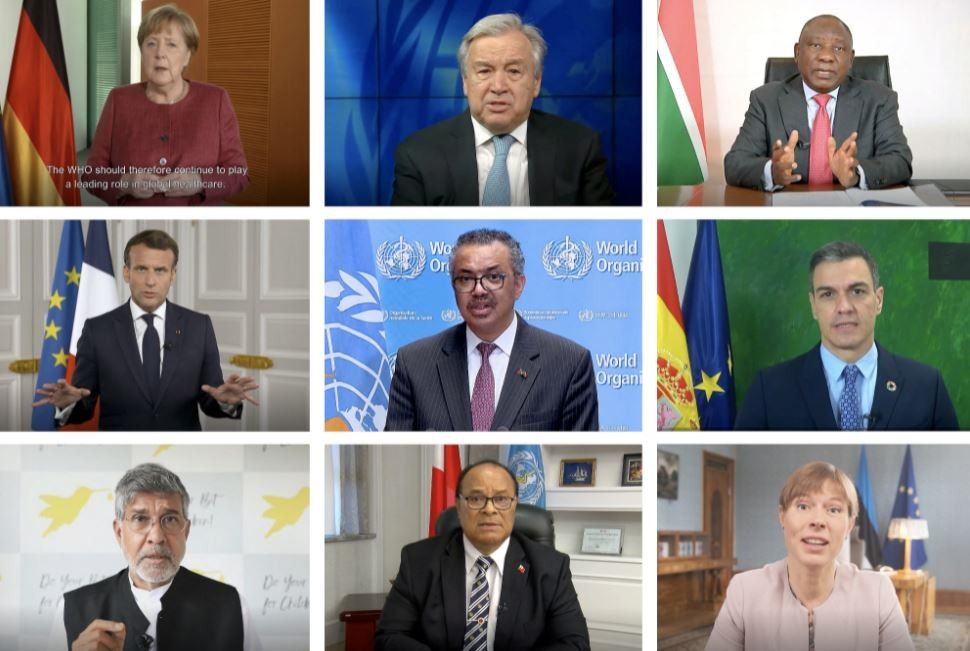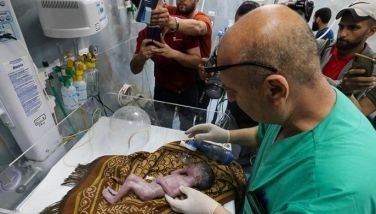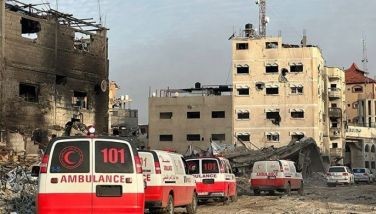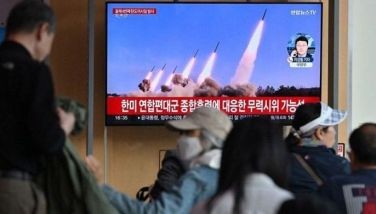Countries mull WHO reform and how to rebuild post-COVID world

GENEVA, Switzerland — Vaccine sharing, strengthening the WHO and adopting a pandemic treaty were among proposals from world leaders Monday on how to halt the COVID-19 pandemic and prevent future health catastrophes.
The World Health Organization kicked off the main annual gathering of its 194 member states with all eyes on the global response to COVID-19 -- and what concrete steps can be taken to avert future pandemics.
"We are at war with a virus," United Nations chief Antonio Guterres told the opening of the 74th World Health Assembly (WHA).
"We need the logic and urgency of a war economy, to boost the capacity of our weapons," he said.
With the COVID-19 crisis still raging and wealthy nations hoarding most doses of life-saving vaccines, the WHO's main decision-making body has plenty to discuss.
The assembly, being held virtually until June 1, will focus heavily on efforts to rein in the pandemic and on calls to revamp the entire global health approach to help prevent future COVID-like catastrophes.
There is much at stake, with WHO chief Tedros Adhanom Ghebreyesus saying this year's WHA was "arguably one of the most important" in the UN health agency's history.
'Not over'
"The pandemic is not over," he said, pointing out that just during the first hour or so of the assembly, nearly 1,000 people had died worldwide from COVID.
He called for strong actions to rein in COVID-19, which has already killed more than 3.4 million people globally, and prepare for the next pandemic threats ahead.
"This is not the time for incremental improvements or tinkering at the edges," he told the assembly.
"This is the moment for bold ideas, bold commitment and bold leadership, for doing things that have never been done before."
A number of mainly European countries are calling for significant strengthening of the WHO, which has been pushed to the brink by COVID. They want to boost its independence, flexibility and funding.
The WHO "must be the heart, the compass, of our global health approach," French President Emmanuel Macron told the assembly.
"This organisation must be robust in times of crisis, it must be flexible enough to react to emergencies," he said.
German Chancellor Angela Merkel meanwhile said "the priority must be to enable the world to respond to a pandemic threat as rapidly as possible," and voiced support for the creation of a global health threats council.
Despite a palpable sense of urgency, fears abound that countries will not go far enough.
There are particular disagreements over proposals to boost the WHO's powers, and to hand it more independence to investigate and sound the alarm about serious health threats.
On Tuesday, ministers and diplomats will discuss the findings of three separate independent panels that assessed aspects of the global pandemic response.
More independence
Finding that countries and institutions had been woefully unprepared to deal with the crisis, the panels argued for a total overhaul of the global alarm system.
A draft resolution to strengthen the organisation is calling for the creation of a new working group to study and streamline the various recommendations and create concrete proposals for the 2022 WHA to consider.
And it urges the creation of a pilot project, which would be voluntary at first, where countries would submit to regular reviews by other member states of their pandemic preparedness, in the same way they undergo reviews of their rights situations before the UN Human Rights Council.
However, it stops short of explicitly backing the experts' recommendation to hand the WHO broader powers to launch investigations.
Experts have also highlighted the importance of boosting confidence in the WHO's independence, which has taken a hit as countries have traded blame over the crisis and accused the organisation of taking sides.
One way of doing this, they suggested, would be to limit the WHO director-general's time in office to a single seven-year term, instead of the current possible two five-year terms.
A number of countries are also pushing to start negotiations during the WHA towards a new international treaty to prepare for the next pandemic -- and avoid the unseemly scramble for vaccines hampering the international COVID response.
Despite constant calls for global solidarity during the pandemic, the crisis has only deepened inequalities, with vaccines especially going disproportionately to wealthy nations.
"The ongoing vaccine crisis is a scandalous inequity that is perpetuating the pandemic," Tedros warned.
- Latest
- Trending






























